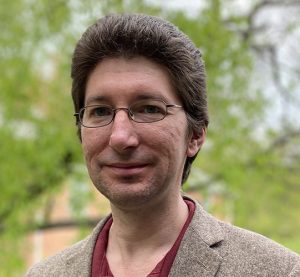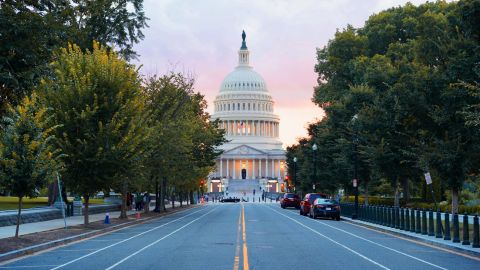Study documents impact of federal funding for basic research
Biomedical research aimed at improving human health is particularly reliant on publicly funded basic science, according to a new analysis boosted by artificial intelligence.
“What we found is that even though research funded by the National Institutes of Health makes up 10% of published scientific literature, those published papers account for about 30% of the substantive research — the important contributions supporting even more new scientific findings — cited by further clinical research in the same field,” says B. Ian Hutchins, a professor in the University of Wisconsin–Madison’s Information School, part of the School of Computer, Data & Information Sciences. “That's a pretty big over-representation.”

Hutchins and co-authors Travis Hoppe, now a data scientist at the Centers for Disease Control and Prevention, and UW–Madison graduate student Salsabil Arabi, published their findings recently in the Proceedings of the National Academy of Sciences.
Published research papers typically include lengthy sections citing all the previous work supporting or referenced within the study. “Predicting substantive biomedical citations without full text,” the paper by Hutchins and Hoppe that you are reading about right now, cited no fewer than 64 other studies and sources in its “References” section.
Citations represent the transfer of knowledge from one scientist (or group of scientists) to another. Citations are extensively catalogued and tracked to measure the significance of individual studies and of the individuals conducting them, but not all citations included in any given paper make equally important contributions to the research they describe.
“We're taught that as scientists, when we make a factual claim, we're supposed to back it up with some kind of empirical evidence,” Hutchins says. “Like in Wikipedia entries, you can't have the little ‘citation needed here’ flag. You have to add that citation. But if that fact you’re citing isn't actually describing key prior work that you built upon, then it doesn't really support the interpretation that the citation represents a necessary earlier step toward your results.”
Hutchins and his collaborators figured citations added later in the publication process, like those that appear at the behest of peer reviewers — the subject-matter experts that evaluate scientific papers submitted to journals — are less likely to have been truly important to the authors’ research.
“If you’re building on other people's work, you probably identify that work earlier on in the research process,” Hutchins says. “That doesn't mean all the references that are in an early version of the manuscript are important ones, but the important ones are probably more concentrated in that earlier version.”
To make the early-late distinction, the researchers trained a machine learning algorithm to judge citations on their importance by feeding it citation information from a pool of more than 38,000 scholarly papers. Each paper’s citation data came in two versions: a preprint version, posted publicly before peer review, and the eventual published version that had undergone peer review.
The algorithm found patterns to help identify the citations that were more likely to be important to each piece of published science. Those results revealed NIH-funded basic biological science appearing in the weightier citations at a rate three times the size of its share of all published research.
“Federal funding for basic research is under constant scrutiny from members of the public and congressional leadership,” Hutchins says. “This gives us some evidence, not just anecdotes, that this kind of basic research funding is really important for stimulating the kind of clinical research — treatments and cures for people — that Congress tends to be more receptive to funding.”
This article first appeared on the University of Wisconsin-Madison website. Read the original.
Enjoy reading ASBMB Today?
Become a member to receive the print edition four times a year and the digital edition monthly.
Learn moreGet the latest from ASBMB Today
Enter your email address, and we’ll send you a weekly email with recent articles, interviews and more.
Latest in Policy
Policy highlights or most popular articles

Building a stronger future for research funding
Hear from Eric Gascho of the Coalition for Health Funding about federal public health investments, the value of collaboration and how scientists can help shape the future of research funding.

Councilors advocate for science on Capitol Hill
ASBMB Councilors meet with their elected officials to advocate for basic scientific research funding and training the next generation of scientists.

Hope for a cure hangs on research
Amid drastic proposed cuts to biomedical research, rare disease families like Hailey Adkisson’s fight for survival and hope. Without funding, science can’t “catch up” to help the patients who need it most.

Supporting science through advocacy and community building
ASBMB calls on scientists to take action as funding cuts and policy shifts threaten the U.S. research enterprise, emphasizing the power of community advocacy and persistence in protecting the future of science.

Seven steps to advocating in your home state
Find out how to schedule, prepare for and conduct a productive district office meeting to communicate the importance of fundamental scientific research funding to your representatives.

ASBMB members call for funding and agency support amidst uncertainty
In 60 meetings on Capitol Hill, scientists urge legislators to reaffirm support for scientific innovation

